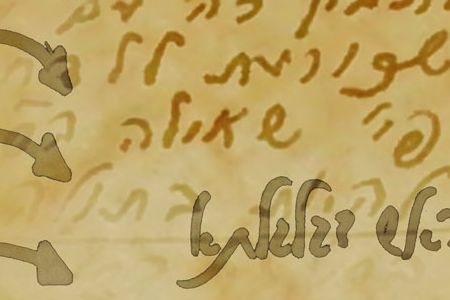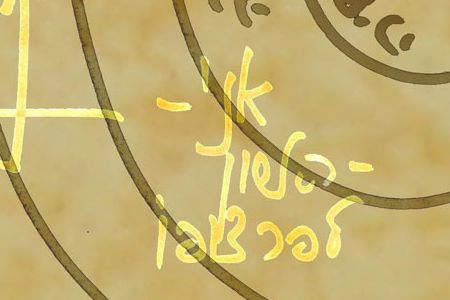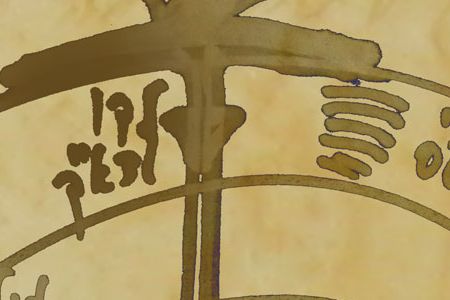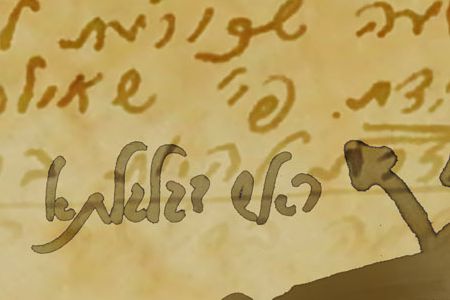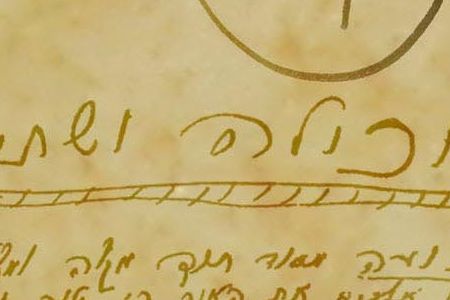
Exodus, 30:11-34:35
This Week’s Torah Portion | Feb 25 – Mar 02, 2024 – 16 Adar – 22 Adar, 5784
In A Nutshell
The portion, Ki Tissa (When You Take), begins with a request of each one of the children of Israel to donate half a shekel for the building of the tabernacle. The portion mentions some other details about the tabernacle such as the anointing oil, the table, and the menorah and its vessels, appointing Bezalel, son of Uri Ben Hur, as chief craftsman, Ahaliav Ben Ahisemech as his assistant, and commanding the children of Israel to observe the Sabbath.
Later, Moses ascends to Mount Sinai to receive the tablets of the covenant but delays in his return, so the children of Israel seek proof that the Creator exists and demand of Aaron to build a golden calf. Aaron agrees, takes their gold vessels, melts them, and builds the golden calf.
When Moses returns from the mountain and sees it, the tablets of the covenant break. The Creator wishes to destroy and ruin the entire people of Israel, and Moses pleads for their souls.
Moses speaks to the Creator “face to face,” and wishes to conceal himself.
At the end of the process, the Creator agrees and makes a covenant with the people of Israel. The Creator also promises Israel that they will enter the land of Israel, and repeats the commandment of the three Pilgrimage festivals (Shalosh Regalim) and the prohibition of idolatry.
Moses stays with the Creator on Mount Sinai forty days and forty nights, writes on the tablets, and comes down from the mountain. It is written, “And it came to pass when Moses came down from Mount Sinai with the two tables of the testimony in Moses’ hand … that Moses did not know that the skin of his face beamed while He talked with him” (Exodus, 34:29). It was so much so that he had to hide himself from the people once more because they feared speaking with him.

Commentary by Dr. Michael Laitman
Those who do not know the language of Kabbalah will find it hard to understand that the text actually discusses a person’s inner development. It concerns our nature, which is the will to receive, an egoistic desire that requires correction. The Torah speaks only of the correction of the desire, as it is written, “I have created the evil inclination; I have created for it the Torah as a spice”[1] because “the light in it would reform them.”[2]
The purpose of the correction is to transform our evil (egoistic) inclination, which aims only toward self-gratification and exploitation of the entire world for itself, and turn it into love of others, as in “love your neighbor as yourself.”[3]
The Torah speaks of a process that is not simple, but which all of us experience. The general crisis we are in will cause us to come out to the light, to correction, similar to the exodus from Egypt. Today we are all standing before Mount Sinai with a huge ego, with all the Kelim (vessels) we have taken from Egypt. During the millennia of development, humanity has accumulated a massive ego; now we have no clue what to do with it, other than escape it.
When we are drawn toward Mount Sinai we discover a mountain of hate between us. Only the point within us, called Moses, pulls us forward toward connection with something higher, a higher degree—human degree of similarity with the Creator.
Continue reading “Ki Tissa (When You Take) Parsha – Weekly Torah Portion”

